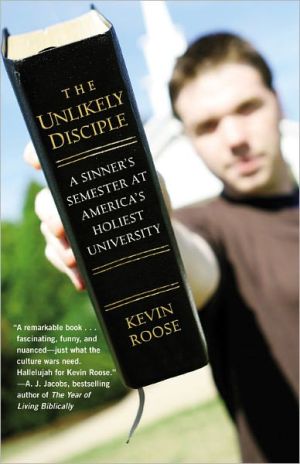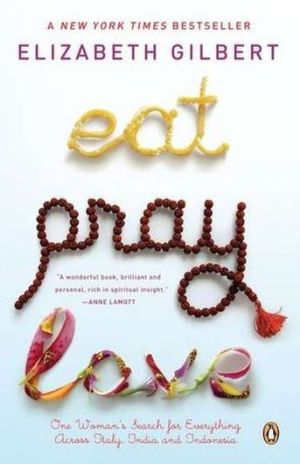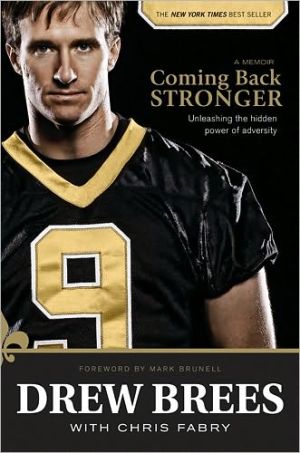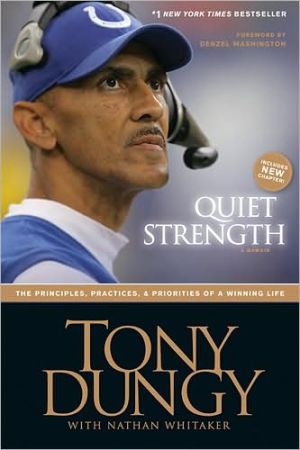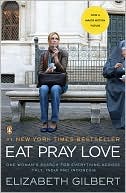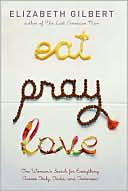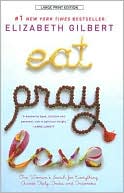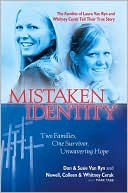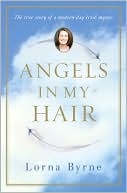The Unlikely Disciple: A Sinner's Semester at America's Holiest University
No drinking.\ No smoking.\ No cursing.\ No dancing.\ No R-rated movies.\ \ Kevin Roose wasn't used to rules like these. As a sophomore at Brown University, he spent his days drinking fair-trade coffee, singing in an a cappella group, and fitting right in with Brown's free-spirited, ultra-liberal student body. But when Roose leaves his Ivy League confines to spend a semester at Liberty University, a conservative Baptist school in Lynchburg, Virginia, obedience is no longer optional.\ Liberty...
Search in google:
No drinking. No smoking. No cursing. No dancing. No R-rated movies. Kevin Roose wasn't used to rules like these. As a sophomore at Brown University, he spent his days drinking fair-trade coffee, singing in an a cappella group, and fitting right in with Brown's free-spirited, ultra-liberal student body. But when Roose leaves his Ivy League confines to spend a semester at Liberty University, a conservative Baptist school in Lynchburg, Virginia, obedience is no longer optional. Liberty is the late Reverend Jerry Falwell's "Bible Boot Camp" for young evangelicals, his training ground for the next generation of America's Religious Right. Liberty's ten thousand undergraduates take courses like Evangelism 101, hear from guest speakers like Sean Hannity and Karl Rove, and follow a forty-six-page code of conduct that regulates every aspect of their social lives. Hoping to connect with his evangelical peers, Roose decides to enroll at Liberty as a new transfer student, leaping across the God Divide and chronicling his adventures in this daring report from the front lines of America's culture war. His journey takes him from an evangelical hip-hop concert to choir practice at Falwell's legendary Thomas Road Baptist Church. He experiments with prayer, participates in a spring break mission trip to Daytona Beach (where he learns to preach the gospel to partying coeds), and pays a visit to Every Man's Battle, an on-campus support group for chronic masturbators. He meets pastors' kids, closet doubters, Christian rebels, and conducts what would be the last print interview of Rev. Falwell's life. Hilarious and heartwarming, respectful and thought-provoking, The Unlikely Disciple will inspire and entertain believers and nonbelievers alike. The New York Times - Blake Wilson Roose has a dry, age-appropriate sense of humor, but he carefully avoids any snark…Roose's "amateur ethnography" is most useful not for its quick glosses of political and doctrinal issues, but for its vivid, sunny and skeptical portrait of life among the saved.
Prepare Ye It’s midnight at Liberty University, and I’m kneeling on the floor of my dorm room, praying. This is not a particularly unusual event. Any night of the week, a quick stroll through Liberty’s campus would reveal hundreds of students in the same position, making the same kind of divine appeal. At this school, we pray for everything: good grades, a winning football season, religious revival in America, chicken fingers in the dining hall. Our God is a workhorse God, and as the Bible instructs, we petition him without ceasing. Put it this way: if prayers emitted light, you’d see us from space. Our chancellor, the Reverend Jerry Falwell, always tells us that prayer is the key to a productive Christian life. And, well, he should know. In 1971, Rev. Falwell felt God calling him to start a Christian college in his hometown of Lynchburg, Virginia. He answered the call, and over the next thirty-six years, while organizing the Moral Majority, shepherding one of America’s largest megachurches, and establishing himself as the father of the Religious Right, he found time to transform that Christian college into what it is today: the world’s largest evangelical university, a ten thousand–student training ground for America’s conservative Christian youth. “Bible Boot Camp,” he calls it. It’s a tongue-in-cheek name, but a fairly accurate one. Like a West Point drill sergeant, Rev. Falwell prides himself on discipline. His field manual, a forty-six-page code of conduct called “The Liberty Way,” governs every aspect of our lives and dispenses concrete punishments when we veer off course. Such as: \ \ • Possession and/or use of tobacco: 6 reprimands + $25 fine\ • Improper personal contact (anything beyond hand-holding): 4 reprimands + $10 fine \ • Attendance at, possession or viewing of, an R-rated movie: 12 reprimands + $50 fine \ • Spending the night with a person of the opposite sex: 30 reprimands + $500 fine + 30 hours community service Rev. Falwell envisioned Liberty as a Christian safe haven where young evangelicals could get a college education without being exposed to binge drinking, pot smoking, sexual experimentation, and all the other trappings of secular coed culture. He planned to make it the evangelical equivalent of Notre Dame or Brigham Young, a university where every student would be trained in the liberal arts, fortified in the evangelical faith, and sent out into the world as a “Champion for Christ.” That plan must have worked, because today, our school is still a bastion of sparkling Christian purity—sort of the anti-Animal House. On this campus, you’ll find girls who are saving their first kisses for marriage, guys whose knowledge of the female anatomy is limited to the parts you can show on basic cable, and students of both sexes who consider it a wild Friday night when their Bible study group serves Cheetos and Chex Mix. Of course, you’ll also find Liberty students who aren’t so sheltered, who don’t walk around campus humming hymns and speaking in parables. Like any other religious community, Liberty has its fair share of nonconformists. A few Liberty students, in fact, choose to live relatively normal collegiate lives, even when it means violating “The Liberty Way.” That’s why I’m praying on the floor of my room tonight—because my friend Dave is in trouble. It started last Friday afternoon when Dave, a brawny, goateed shot- putter on Liberty’s track team, approached his friend Wayne with an idea. “Let’s get out of here for the weekend,” he said. Dave explained that one of his high school friends, a non-Christian girl named Jessie, had invited both of them to a special party at her secular college, three hours away from Lynchburg. “A lingerie party,” he said. “Wayne, she invited us to a lingerie party. Like . . . a party . . . where the girls wear lingerie.” Wayne chuckled. “Naw, man. You know we can’t do that.” He was right. Attending a party of any type is forbidden under “The Liberty Way,” but a lingerie party would be off-the-charts sinful. Still, as Dave talked more about the party and how many beautiful, scantily clad girls would be there, he felt his resistance weakening. I mean, I haven’t been off campus all semester. And what harm could one night do? By the time Dave finished his pitch, Wayne’s mind was made up: he wanted to go. The party wouldn’t be holy, but it wouldn’t be the worst thing in the world, either. So the two friends signed out on the campus log sheet—to the off-campus apartment of an older Liberty student they knew—and drove to secular school instead. The party was wilder than they’d expected. Girls in sheer negligees and lacy bustiers floated around the room, grinding lustily with each other while loud hip-hop music blared over the rowdy yells of beer pong players. Dave had gone to some parties in high school, but Wayne was relatively new to the scene, and getting comfortable took three or four cups of a beverage he’d never heard of (“jungle juice,” was it?). After an hour of drinking, Dave and Wayne felt loose enough to unveil their big surprise: two pairs of special underwear, purchased in advance for the occasion. Dave stripped down to a black man-thong, and Wayne, a bit more reserved, wore a pair of SpongeBob SquarePants boxers. They drank and danced and cavorted with the secular students until the wee hours, using Dave’s digital camera to snap the photos he would eventually post, for posterity, on his MySpace profile. That was the fatal step, of course, and no one can quite understand why Dave did it. Did he really think his secrets were safe on the Internet? Was he trying to get kicked out? These are the questions that have circulated through our dorm for the past week. By now, we’ve heard all the stories. We’ve heard how, a few days after the party, Dave found an urgent e-mail from the dean of men waiting in his inbox. How, when he was brought in to the dean’s office, Dave tried to make the case that he hadn’t been at a party. How the dean had pulled from his desk a stack of photos, culled from Dave’s MySpace page, that proved otherwise. How some of the photos had been shockingly lewd, including one of Dave in his man-thong, holding a bottle of liquor in each hand while looking up a girl’s skirt. How Dave had broken maybe half the rules in “The Liberty Way,” including “Attendance at a dance,” “Sexual misconduct and/or any state of undress,” and “Possession or consumption of alcoholic beverages.” How he was served with the biggest punishment on our hall—and maybe at Liberty—all year: seventy-eight reprimands, a $650 fine, and thirty hours of community service. How, at that point, adding up Dave’s punishments was a matter of procedure, like sentencing a serial killer to twenty-three consecutive life sentences, because the alcohol alone was enough to expel him. In short, the guy needs a lot of prayer. After rising from my knees, I walk to Dave’s room. He’s in there with Wayne and a few other friends, still discussing his dean’s office debacle. Dave is still waiting for the official news of his punishment, but he seems to have made peace with the fact that, barring a miracle, he’ll be gone by next week. “I should have done more bad stuff while I was at it,” Dave says, chuckling as he picks at a bag of popcorn. “I mean, they can’t kick me out twice, right? I could have snorted some coke or something.” “Come on, Dave,” says Joey, a Jersey-born freshman who lives at the end of the hall. “At least try to be serious about this.” “I can’t, dude,” Dave says. “When I get serious, I feel pain in my heart.” Wayne is in better shape, it seems. There were no photos of him on Dave’s MySpace page, just photos of their car ride together. His meeting with the dean of men is tomorrow, and he’s planning to say that he dropped Dave off and went somewhere else, skipping the party altogether. “Are you positive he doesn’t have any pictures of you at the party?” Joey asks. “No, not positive,” Wayne says. “But there are none on the Internet. He would have to have another source.” “If he catches you,” Dave says, “you should bust out a Jesus quote.” Wayne’s eyes widen. “What?” “Jesus hung with sinners and tax collectors, dude. If he can hang with sinners, you can, too.” “Yo, that’s a pretty good idea.” “You guys are retards,” says Joey. “Jesus hung with sinners, but he didn’t sin with them. It’s not like the tax collectors had a lingerie party and said, ‘Yo, J.C., you gotta get over here, it’s off the hook!’ ” We’re screwing around, but in truth, this is no laughing matter. Dave, our friend and hallmate, is about to be expelled from school, and Wayne may go with him. Our dorm has hosted its share of controversy this semester, but no one expected this. What Dave and Wayne did was against the rules, of course, but some of us wonder whether, in this case, the punishment truly fits the crime. “I heard about a guy who got more reprimands than you, Dave,” says Wayne. “No way. More than seventy-eight?” says Dave. “Yeah. A few years ago. This guy got triple digits. Broke every rule in one night. He went to a few parties, smoked weed, had sex with a girl, went dancing, destroyed some property. I think he might have even done some homosexual stuff, too.” Joey sweeps his eyes around the room. “Pretty much what secular kids do every weekend, huh?” I used to be a secular kid. Still am, I guess. It’s hard to tell sometimes. These days, I go through the motions of a model Liberty student. I attend prayer groups, I sing in the church choir, I spend my Friday nights at Bible study. When it comes to socializing, I follow the old Baptist moral code: “Don’t drink, smoke, or chew, and don’t go with girls who do.” \ \ But what Dave, Wayne, Joey, and the rest of my friends at Liberty don’t know is this: I haven’t always lived this way. In fact, everything I do here—the Bible study, the choir, the clean-cut morality—it’s all part of a borrowed life. Three months ago, I was a student at Brown University, a school known for everything Liberty is not. In fact, it wouldn’t be unfair to call the schools polar opposites. Liberty was founded as a conservative Christian utopia, and by those standards, Brown, with its free-spirited student body, its grades-optional academic scene, and its active chapter of the Young Communist League, is a notch or two above Sodom and Gomorrah. If such a thing exists, I considered myself a fairly typical Brown student. I studied English lit, drank fair-trade coffee, attended the occasional anti-war protest, and sang in an a cappella group. This semester, I transferred to Liberty precisely because it was so different—not just from my old school, but from anything I’d ever seen before. I grew up in the tiny college town of Oberlin, Ohio, a crunchy liberal enclave plopped down improbably in the middle of the Lake Erie Rust Belt. My parents are Quakers, a rather free-spirited sect of Christianity whose members (called Friends) spend a lot of time talking about peace and working for social justice. But despite our affiliation, our house was practically religion-free. We never read the Bible or said grace over our meals, and our attendance at Quaker services was spotty—though we did visit a small Baptist church once a year to sing Christmas carols. (To be clear: this is the kind of Baptist church where the pastor swaps out the gendered language in the carols, like in “Lo! How a Rose E’er Blooming” when “as men of old have sung” becomes “as those of old have sung.”) When high school came around, I left home to attend a boarding school in the Philadelphia suburbs. It happened to be a Quaker boarding school, but going there was hardly a religious decision. In fact, during high school, I wasn’t sure what I thought about my parents’ religion, or about religion in general. I liked learning about the Quaker moral tenets—simplicity, peace, integrity, and equality—but when the subject of God came up, I always found myself lagging behind. Quakers talk about God as an “inner light,” and while I understood that position intellectually, I couldn’t bring myself to think that there was a divine being who existed independent of the human mind, who guided our decisions and heard our prayers. To put it in Quaker terms, my inner light flickered a lot, like the overhead fluorescent at a Motel 6, and sometimes, it burnt out altogether. The closest I came to consistent faith was during my senior year religion class, when we learned about the Central and South American liberation theology movements and I became briefly convinced that God was a left-wing superhero who led the global struggle against imperialism and corporate greed. Sort of a celestial Michael Moore. You can probably guess, then, how I felt during college, when by virtue of a job I had taken as a writer’s assistant, I found myself standing in the lobby of Jerry Falwell’s twenty thousand–member Thomas Road Baptist Church, which occupies the entire northern end of Liberty’s campus. My boss, the journalist A. J. Jacobs, had taken me to Thomas Road on a research trip for his book, The Year of Living Biblically. I had never been to a megachurch before, and there was something thrilling about the idea of seeing Jerry Falwell in action. Like many non-evangelicals, I knew Rev. Falwell only as the arch-conservative televangelist with the least effective brain-to-mouth filter in the English-speaking world. I remembered that he had gone on TV to blame the terrorist attacks of September 11, 2001, on feminists, homosexuals, abortionists, and the ACLU, among others. I had seen some of his other inflammatory remarks, like when he told CBS’s 60 minutes that the prophet Muhammed was “a terrorist,” or when he said that AIDS was “God’s punishment for the society that tolerates homosexuals.” But Jerry Falwell in theory and Jerry Falwell in practice are two very different things, and by the time I was standing in Thomas Road’s cavernous lobby on a mild Sunday morning in July, watching a few thousand Falwell devotees mill around, my thrill had turned into stomach-clenching anxiety. My inner monologue was going a mile a minute: Who are these people? Do they really love Jerry Falwell? Do they believe 9/11 was caused by gay people, too? How is that even possible? And what’s a coffee shop doing in a church lobby? When A. J. left to take notes on another part of the church, I chatted up a group of Thomas Roaders I found in the lobby, two girls and a guy who looked to be around my age. I introduced myself, told them why I was visiting, and asked how long they’d been coming to Thomas Road. “We come here every week,” they said. “We go to Liberty.” I wasn’t sure whether “go to Liberty” was some sort of coded religious language, like “walk the path” or “seek the kingdom,” so I asked. I had to chuckle when they told me that “Liberty” meant Liberty University, a Christian liberal arts college founded and presided over by Rev. Falwell. I mean, come on. A liberal arts college run by Jerry Falwell? How about an etiquette workshop run by Courtney Love? But I wanted to give them the benefit of the doubt, so I asked them to tell me more about their school. “Oh, I love Liberty!” said one of the girls, an effusive blonde in a green sundress. She spent five minutes making an enthusiastic pitch, which included statistics about Liberty’s recently opened law school, its top-ranked debate team, and its Division I athletic program. She told me that Liberty has grown at a rate—from 154 students in 1971 to nearly 25,000 in 2007 (including more than 15,000 taking courses via the Internet)—that few colleges, secular or religious, have ever matched. It was impressive stuff, but it wasn’t quite what I wanted to know. “So, what do you guys do for fun?” I asked. They looked at each other quizzically, then back at me. The blonde stammered, “I mean, we do different . . . things. I don’t really know what you’re asking.” This wasn’t getting me off on the right foot. Maybe I needed to break the ice. “Any good parties around here? ” But I got no chuckles, only blank stares. The guy, a long, lean boy-band type with jutting platinum hair, squinted and peered down his nose. “Do you know Christ?” I was new to evangelical argot, so I didn’t know that if a Liberty student has to ask this question, he probably knows the answer already. The way I saw it, I could (a) tell him I did know Christ, which might not go so well if he decided to follow up, (b) try to deflect with sarcasm again, something like, “Yeah, he’s a friend of a friend. We don’t really hang out much,” or (c) admit that I was a foreigner. Too scared for (a) or (b), I chose (c). I told him I didn’t know Christ, and after he spent five minutes explaining why I should consider meeting him, I said, as gently as I could, that I wasn’t interested in converting. “Please don’t be offended,” I said. “It’s just not my thing.” They glanced at each other, all three a little mystified. Not my thing? How could it not be my thing? They didn’t browbeat me, but I had definitely made them uneasy. We made a little more small talk, and then, since church was starting, we parted ways with nods and hesitant half- waves. On the plane ride back from Virginia, I replayed those fifteen minutes over and over in my mind. Every time, I got more frustrated with myself. Why wasn’t I able to hold down that conversation? I mean, I’ve heard of the God Divide before, in a thousand Newsweek articles and one-hour CNN specials. I’m aware that a tree-hugging Brown student isn’t supposed to be able to talk to a Bible-thumping Liberty student. But why not? Aren’t we all part of the Millennial generation? Don’t we all carry the same iPhones and suffer from the same entitlement complex? One recent study showed that 51 percent of Americans don’t know any evangelical Christians, even casually. And until I visited Thomas Road, that was me. My social circle at Brown included atheists, agnostics, lapsed Catholics, Buddhists, Wiccans, and more non-observant Jews than you can shake a shofar at, but exactly zero born-again Christians. The evangelical world, in my mind, was a cloistered, slightly frightening community whose values and customs I wasn’t supposed to understand. So I ignored it. After my visit to Thomas Road, though, I was hooked. I started reading up on Liberty and other evangelical colleges, and the more I read, the more I began to realize the importance of knowing about my Christian peers. This isn’t a fringe culture, after all. According to the Barna Group, an evangelical polling firm, a full one-third of America’s teenagers self-identify as born-again Christians. Liberty has almost ten thousand students living on its campus, and it’s just one of hundreds of evangelical colleges across America. Alumni of evangelical colleges run blue-chip corporations, work in big media, and sit in elected office. If I ever get a real job, my cubicle might well be next to a Liberty graduate’s. As a college student who doubles as a journalist, what fascinated me most about Liberty was its student culture. I still had so many unanswered questions. Like, what do Champions for Christ learn in class? Do they date? Do they use Facebook? What exactly do they believe? And are we really that different? I also felt intuitively that there was something limiting about being an outsider in the evangelical world. When I told the Liberty students at Thomas Road that I hadn’t accepted Christ as my savior, the entire dynamic of the conversation changed. It began to feel distant and rehearsed, like a pitch for Ginsu knives. So how could I, a curious non-evangelical, get the inside scoop? Several months after my Thomas Road visit, while browsing Liberty’s website one morning, it clicked: What if I spent a semester at Liberty as a student? What if, instead of speculating about Christian college life from afar, I jumped over the God Divide and tried to experience it myself?
\ From Barnes & NobleBarnes & Noble Discover Great New Writers\ It's midnight in Lynchburg, Virginia, and Roose is kneeling on his dorm room floor. No, he's not reeling from too much beer. He's praying. And at Liberty University, such behavior is fairly uneventful. The world's largest evangelical college, with a 10,000-strong study body, Liberty is a training ground for the conservative Christian right, which until his death, was lorded over by the Reverend Jerry Falwell. So what happens when a fairly typical student from an Ivy League university tries a semester at Bible boot camp? \ \ His Bible in hand, Roose embarked on a new life slated to last just one semester, with no pot smoking, no binge drinking, and no sex. He hewed to a rigorous new path of Bible study, choir practice, and prayer groups. But a month into his Southern sojourn, he discovers the worrisome part: he's feeling his own beliefs shift. Is it a great awakening? Maybe, maybe not. \ \ A fresh, candid look at what goes on behind the closed doors of our nation's Christian colleges, The Unlikely Disciple is a revelation: a completely balanced memoir that shows us, with the aid of Roose's keen eye and generous spirit, that faith is a lot more complicated than it seems. (Summer 2009 Selection)\ \ \ \ \ Blake WilsonRoose has a dry, age-appropriate sense of humor, but he carefully avoids any snark…Roose's "amateur ethnography" is most useful not for its quick glosses of political and doctrinal issues, but for its vivid, sunny and skeptical portrait of life among the saved.\ —The New York Times\ \ \ Publishers WeeklyIn what could be described as religious gonzo journalism, Roose documents his experiences as a student for a semester at Liberty University, the largest Christian fundamentalist university in the United States. Coming from progressive Brown University, the author admits that the transition to Liberty, with its iron-clad attempts at controlling student behavior, came with much anxiety. He trains himself to control his foul language and even begins to pray and study the Bible regularly, much to the bewilderment of his liberal Quaker parents. He suffers his way through a course debunking evolution, but finds enjoyment in a Scripture class. Roose may be young-he's a 19-year-old college sophomore-but he writes like a seasoned veteran and obviously enjoys his work. He quickly makes friends at Liberty, but is naïvely stunned and not a little disgusted by their antigay rhetoric. School founder Rev. Jerry Falwell granted Roose an interview for the student newspaper shortly before the famous evangelical's death in May 2007. "Complicated" is how Roose describes Falwell, which is a good descriptor for his undercover student experience. (Mar.)\ Copyright © Reed Business Information, a division of Reed Elsevier Inc. All rights reserved.\ \ \ \ \ Library JournalThis highly readable, entertaining, and thought-provoking narrative offers an insider's account of fundamentalist Christian culture from an outsider's secular perspective. When he was a Brown University sophomore (he'll graduate this year with a degree in English literature but has already had work published in Esquire and Spin), Roose opted to spend a semester "abroad" in Lynchburg, VA, as a student at Liberty University, founded by Jerry Falwell and now the world's largest evangelical university. Working undercover as an amateur journalist/ethnographer, Roose describes Liberty campus life as he experiences it, from faculty course lectures in creationism to abiding by the Liberty Way, a strict code of conduct that forbids "immoral" activities such as R-rated movies, student demonstrations, and physical contact beyond a three-second hug. As Roose reinvents himself for the role, he forms relationships with the Liberty students and faculty (including meeting and interviewing Falwell, who died in May 2007) that challenge his assumptions about fundamentalist Christian culture. Humorous anecdotes are interspersed with thoughtful analysis. Recommended for libraries of all types. [See Prepub Alert, LJ 11/5/08.]\ —Brian Greene\ \ \ \ \ \ Kirkus ReviewsIvy League student spends three months immersed in an alien culture at Jerry Falwell's Liberty University. Instead of cavorting through the major European capitals for a semester like many students his age, Roose shocked family and friends by enrolling at one of the nation's most conservative Christian universities. After an attempt to interact honestly with his fundamentalist peers was met with awkward silence and resistance, Roose decided to go undercover, pretending to be a recently converted evangelical Christian in order to write about the reality of life on campus. To improve the ruse, he added his voice to the 300-strong Thomas Road Baptist Church choir, joined weekly Bible studies and one-on-one prayer sessions with his dorm buddies, and even traveled to Daytona Beach during spring break to evangelize on the frontlines. Reared in a liberal Quaker home, Roose had to develop a new body of knowledge, from Young Earth creationism to the trials and triumphs of "witnessing" for Jesus. Participation in this hyper-religious community of young people led him to identify more with his friends at Liberty, blurring the line between the writing project and his own faith. Therein lay the danger of his experiment: Roose lost much of his objectivity by drawing too close to the group he studied. Throughout the semester, he noted the progress of the transformation, but he chose to dwell on its positive aspects, such as an increasing sense of connection to God and the cherished realization that not all fundamentalist Christians are hate-mongering hypocrites. The climax of his semester was his interview of Falwell just days before his death. The author's complex emotions about the interview andFalwell's death signaled that, like it or not, his semester at Liberty had altered Roose's way of thinking-though perhaps not permanently, as he was still a teenager at the time and would soon return to the uber-liberal embrace of Brown University. Problematic but engaging participant observation.\ \
